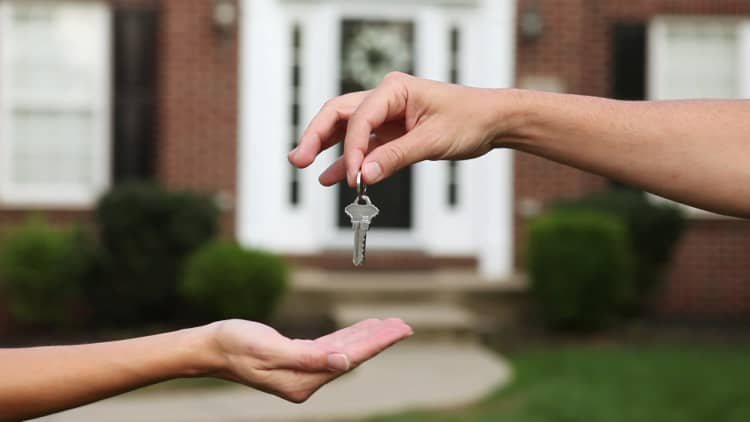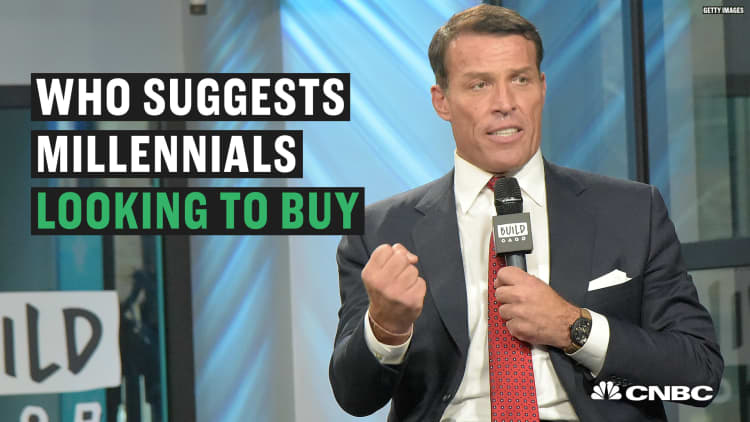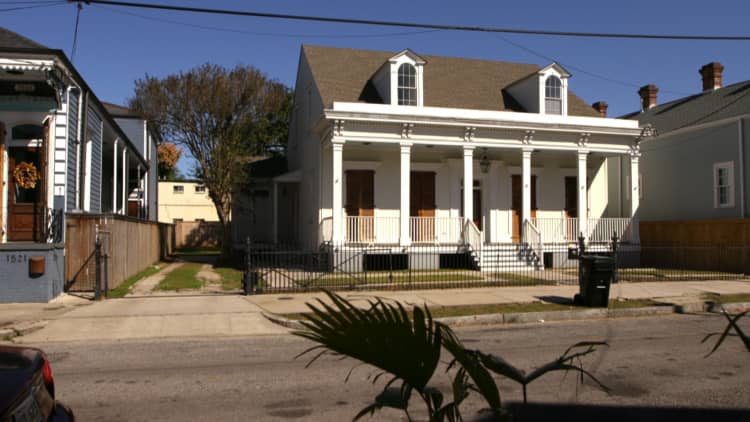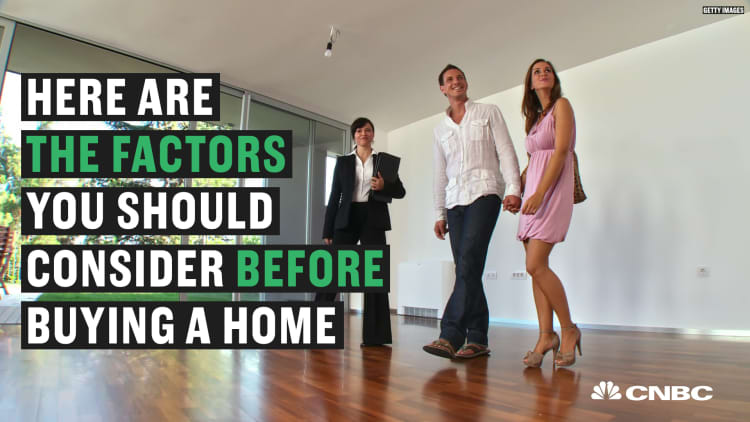More and more millennials are emptying out the savings accounts they've contributed to patiently for years and getting ready to sign the papers that will make them, for the first time, homeowners. That should please personal finance experts like David Bach, author of "The Automatic Millionaire," who tells CNBC that not prioritizing homeownership is "the single biggest mistake millennials are making."
But buying before you're ready can also be a big mistake, and one that's hard to walk back.
If you're among the 80 percent of millennials who do want to buy, at least someday, how do you know if you're in good shape to make it happen now?
Here are three signs that you might not actually be ready to buy a home.
You don't have enough money saved
Having a down payment of 10-20 percent of your potential home's purchase price in the bank is an impressive achievement, and you should be proud of yourself. But having saved that much doesn't necessarily mean you're set.
Eric Roberge, CFP and founder of Beyond Your Hammock, points out that affording a home means you have much more cash on hand than what you'll need up front. In fact, a down payment is just one of six necessary factors you need to budget for. The other five are closing costs, moving expenses, repairs and maintenance, the first few months' mortgage payments and your emergency fund.
Some of those line items are expensive. Closing costs can run you two-to-five percent of the total cost of the home, for example, while the cost of repairs and maintenance can represent 10-to-20 percent of the price of the home each year.
Cumulatively, they represent a sense of how much you'll need saved up to be able to really afford a place of your own month after month. And keep in mind that you don't want this total to exceed 25-to-30 percent of your income for the year, says Cathy Derus, CPA and founder of Brightwater Financial.
If you can't afford to handle all of these one-time and recurring expenses, Derus and Roberge warn, you can't yet afford a home.

You don't have a plan to stay put for about five years
Thanks to their high start-up costs, houses don't usually make great short-term investments. That's why some experts think buyers should abstain altogether. Entrepreneur Tony Robbins, for one, says that, "One of the weakest performers [is] your own personal real estate, because it doesn't provide much income." All it is, he says, is "an inflation hedge. You do a little better than inflation, and you can have your own home, so there's a psychological, emotional benefit."
Millennials in a position to buy should figure out how to do it in a way that will provide them additional cash flow, he says: By acquiring something they can rent out. "If you can own real estate, real estate with an income is the one [form of] real estate that's more valuable," says Robbins.
If you're not interested in becoming a landlord, the other usually reliable way of getting a good return on your investment is to buy and hold, as Warren Buffett would say. Experts generally caution that you should be ready to maintain your home for at least five years and quite possibly longer — and that means you'll need to pay monthly and annual costs for that length of time, too.
Feeling stable? Great! But if you're still itchy to try new challenges, new careers and new relationships, and you crave the freedom to go wherever those adventures may take you, maybe settling down isn't the best choice.

You and your partner aren't clear yet on what you want
If you're partnered up and going into property-owning as a team, make sure both of you agree about what kind of home will work best. City or suburb? A small town or the countryside? Two-car garage or public transit accessible? Tiny house or sprawling McMansion? There are so many decisions to make when you're shopping around that it's not surprising couples end up squabbling.
According to new research by LendingHome, a mortgage lender, buying a home with a significant other is usually fraught — 60 percent of couples shopping for real estate argue either a little, frequently or a lot. But couples who have been together for five years or more fight only half as much as those who have been together for four years or less.
Overall, LendingHome reports, "Top disagreements among couples include the level of debt to take on (49 percent), the style of house (46 percent), size of house (45 percent) and whether or not to buy a house in need of renovation (43 percent)."
Whether or not you wait until you and your partner have been together five years, make sure you're really united before you make a joint purchase this significant.
After you consider all of this, if you find you should probably wait a bit longer to be in a good position to buy, you're not alone.
Given current rates of saving, stagnant wages and the alarming lack of affordable homes nationwide, depending on where they live, it could be over a decade before typical millennials are ready to buy, says Apartment List. In the Bay Area, young people are more like 20 years away.
And young residents of San Jose, Calif., will have to be exceptionally patient: Odds are they won't be in a good position to buy an apartment there for "almost 24 years," or "until the year 2041."
Don't miss: Here's how much you need to save to afford to buy a home




